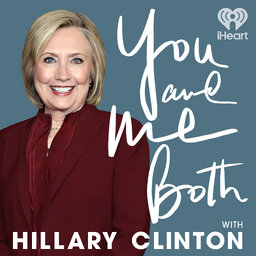Democracy in Crisis: Putin’s Assault (with Anne Applebaum & Michael McFaul)
Over the course of this season of the podcast, Hillary has been examining the challenges our democracy faces. Today, she looks abroad to Russia’s brutal, unprovoked attack on Ukraine, and considers what led to this moment and what’s at stake in this war–for Ukraine, Russia, the United States, and the whole world.
Joining her are two experts. First, historian and journalist Anne Applebaum provides insight into Vladimir Putin and the antidemocratic figures he’s inspired in Europe and beyond. Then, we hear from political scientist and former U.S. Ambassador to Russia Michael McFaul on how we got to this moment from the fall of the former Soviet Union, what the United States can do to help Ukraine, and how to fight back against Russia’s crackdown on truth and dissent.
Bios:
Anne Applebaum is a staff writer at The Atlantic, a journalist, and a historian whose work has largely focused on Eastern Europe and the role of democracy. She is the author of four books, including Iron Curtain: The Crushing of Eastern Europe 1944-56, for which she won the Pulitzer Prize and, most recently, Twilight of Democracy: The Seductive Lure of Authoritarianism. She lives in Warsaw and London.
Michael McFaul is professor of political science at Stanford University, and a diplomat who served at the National Security Council and as U.S. Ambassador to Russia during the Obama administration. He is also an International Affairs Analyst for NBC News and a contributing columnist to The Washington Post. His most recent book, From Cold War to Hot Peace: An American Ambassador in Putin’s Russia, was a New York Times bestseller.
You can find a full transcript HERE.
Learn more about your ad-choices at https://www.iheartpodcastnetwork.com
In 1 playlist(s)
You and Me Both with Hillary Clinton
Hillary Clinton sits down for candid, in-depth, and sometimes hilarious conversations with people sh…Social links
Follow podcast
Recent clips

President Bill Clinton
36:26

Believe in Yourself (Encore with Brandi Carlile and André De Shields)
47:53

Abortion Care After Dobbs (with Dr. Yashica Robinson & Gov. J.B. Pritzker)
42:29
 You and Me Both with Hillary Clinton
You and Me Both with Hillary Clinton